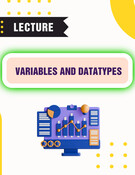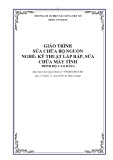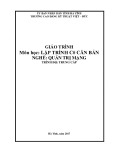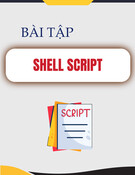
Debugging and Error Handling
Chapter 5
Ebook: Beginning Visual C# 2010, chapter 7
Reference: CSharp How to Program, part D

Contents
Introduction
Debugging
Error handling
Slide 2

Introduction
Errors in program: a program can have three types of
errors:
compile-time errors: The compiler will find syntax errors
and other basic problems
run-time errors: A problem can occur during program
execution, such as trying to divide by zero, which causes a
program to terminate abnormally
logical errors: A program may run, but produce incorrect
results, perhaps using an incorrect formula
1-3

Debugging
Debugging is the process of finding and correcting
logic errors in applications
applications are executed in two ways: with debugging
enabled (F5) or without debugging enabled (Ctrl+F5)
Techniques
debugging in nonbreak mode
outputting debugging information: Console.WriteLine(),
Debug.WriteLine()
debugging in break mode
using Breakpoints
Some windows in Debug\Windows: Autos, Locals,
Watch
demo… Slide 4

Error handling
An exception is an indication of a problem that occurs
during a program's execution
format error,
arithmetic overflow,
out-of range array subscripts,
division by zero,
invalid method parameters
running out of available memory,
…
Your program should be able to handle these
exceptional situations. This is called exception
handling
Slide 5












![Câu hỏi trắc nghiệm Lập trình C [mới nhất]](https://cdn.tailieu.vn/images/document/thumbnail/2025/20251012/quangle7706@gmail.com/135x160/91191760326106.jpg)













